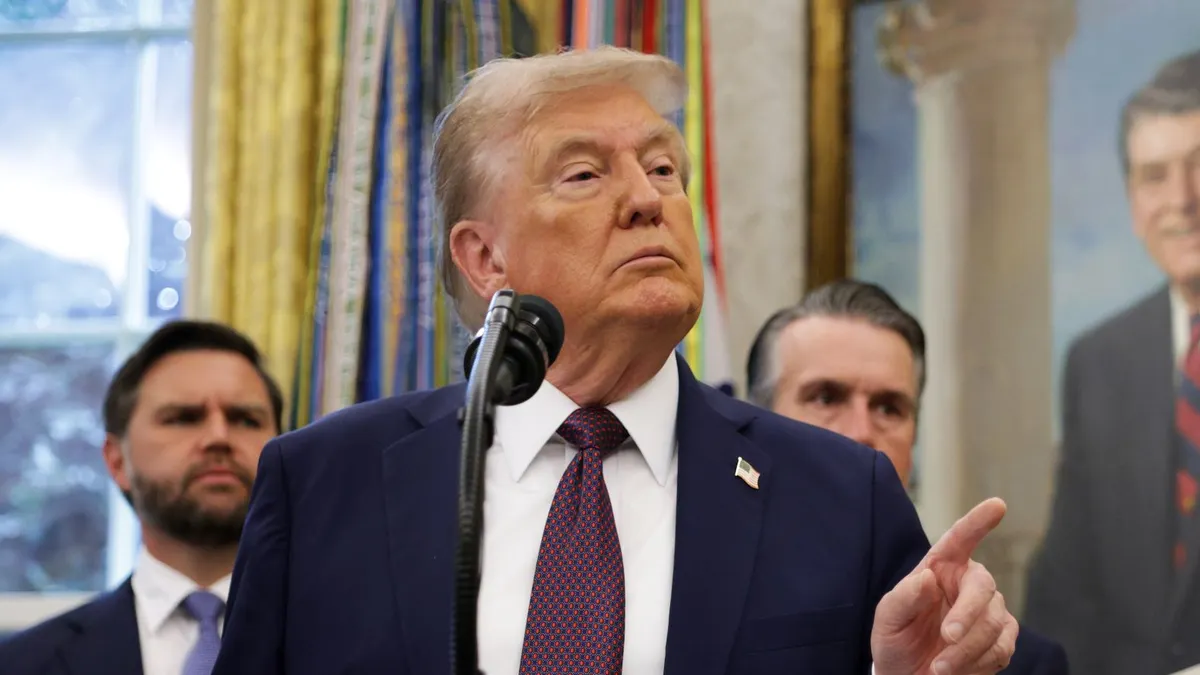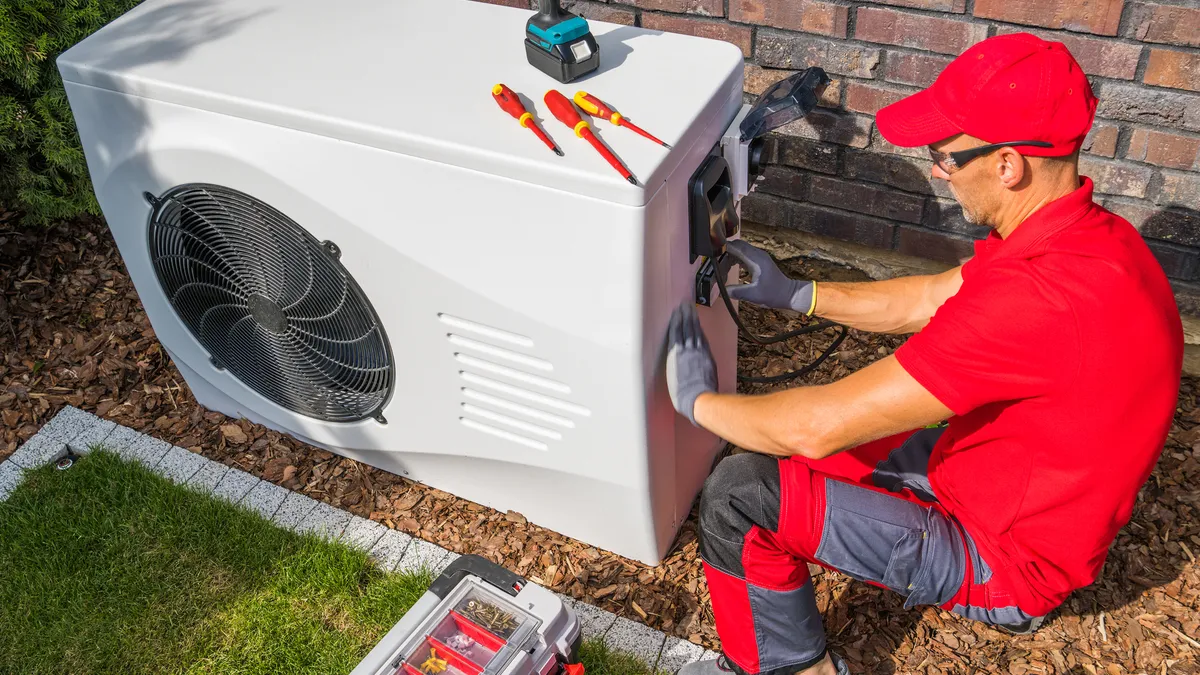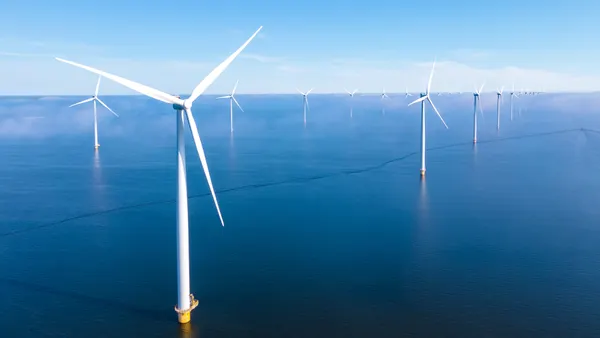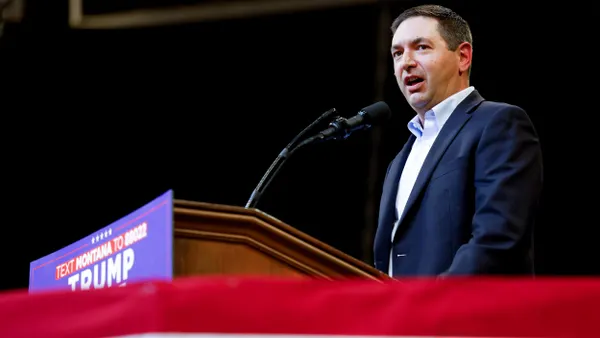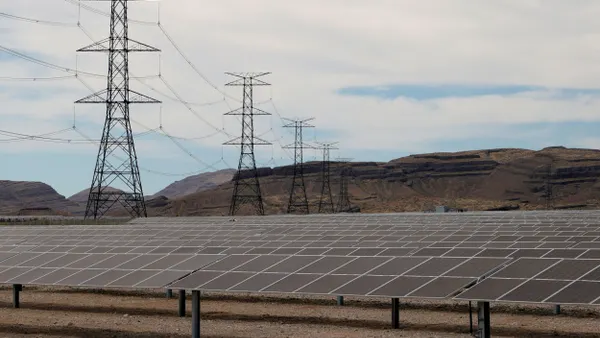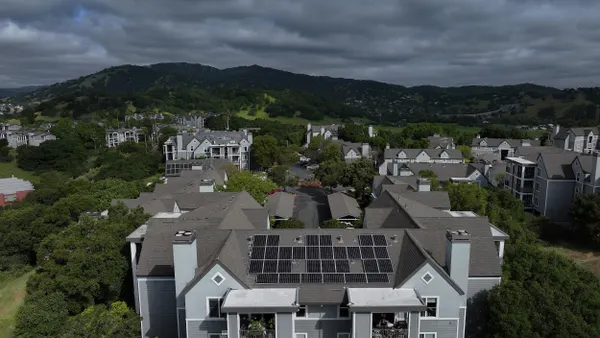Dive Brief:
- The president and CEO of Public Service Enterprise Group (PSEG) said on Wednesday he is "greatly encouraged" by Democrats’ work on a Clean Electricity Performance Program (CEPP) to incentivize utilities to adopt clean energy.
- Ralph Izzo said the CEPP, along with tax credits and other clean energy incentives being discussed as part of the budget reconciliation bill, can lead to a "nationalized market" for clean energy as opposed to a state-by-state market. With more investor interest in clean energy and sustainability efforts, Izzo said the policies will "propel this green economy in ways we’ve never seen in the past."
- The CEPP, which, advanced last week as part of the Energy and Commerce Committee’s section of the $3.5 trillion budget reconciliation bill, would require that utilities increase their share of zero-carbon energy by 4% every year or face financial penalties.
Dive Insight:
The $150 billion proposed CEPP is a version of a clean energy standard and would offer grants to utilities and electricity providers that meet their clean energy growth targets. The plan is seen as central to the Biden administration’s goal of reducing emissions from the power sector 80% by 2030.
However, some utility groups have come out against the idea, questioning whether the goals are achievable without creating problems for ratepayers. Climatewire reports that Columbus-based American Electric Power, which operates two coal plants in West Virginia, said in a letter to utilities and Congressional offices that the program would "adversely impact the reliability and resilience of the electric grid." In a separate letter, the trade group America’s Power, which represents coal producers, utilities and railroads, said the CEPP would not give power providers enough time to adopt clean energy and would create "an excessive and risky dependence on wind and solar power."
Senate Energy and Natural Resources Committee Chairman Joe Manchin, D-W.Va., who will help craft the Senate’s budget bill energy language, has also questioned whether the CEPP makes sense, telling CNN’s State of the Union that the government should not "pay utilities for what they're going to do as the market transitions." Senate Republicans have also said they’ll argue that the strict rules governing the reconciliation process mean the program should be removed from the bill, with Sen. John Cornyn, R-Texas, telling Bloomberg they would "pitch the parliamentarian very, very strongly."
Speaking as part of the National Clean Energy Week Policymakers Symposium, Izzo said that his policy preference is a price on carbon, either through a cap-and-trade program or a carbon tax. However, recognizing the political barriers to a carbon price, Izzo said he had to "stand up and cheer and salute the policymakers who are advocating … these other efforts that are being discussed right now."
New Jersey-based PSEG announced in June that it was moving up its target date to achieve 100% carbon-free electricity generation to 2030. The utility has lowered annual carbon dioxide emissions 60% since 2005, including closing coal plants in New Jersey and Connecticut and announcing plans in 2020 to divest its non-nuclear generating fleet. PSEG has also partnered with Orsted on a portion of the 1,100 MW Ocean Wind project, which Izzo said was a key step to the zero emissions goals without making much of an impact to utility customers.
"We’ll have to make some modest adjustments" to the existing grid to maintain reliability, Izzo said, "but the technology is well established. All that’s needed in the United States is to develop a supply chain and once we see that supply chain, the prices for offshore wind will come down."




